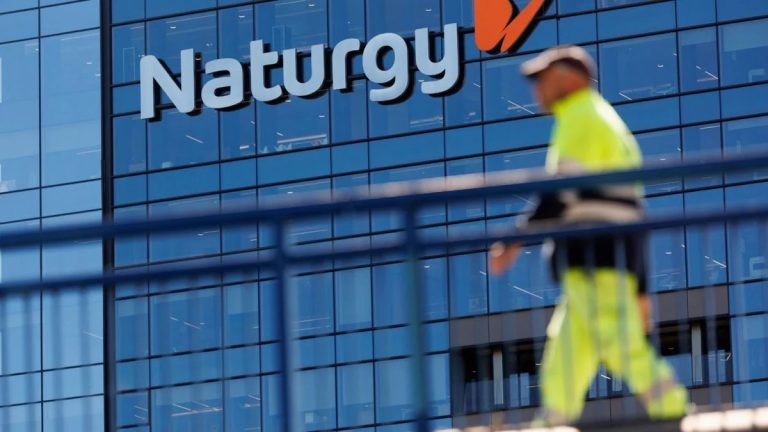
Watan-At a time when the Emirati company “Taqa” is striving to finalize its deal with the Spanish energy giant “Naturgy,” the sale of Algerian gas marketed in Spain to Morocco faces significant challenges and difficulties.
Energy affairs expert and analyst Baghdad Mendoush stated that selling Algerian gas marketed in Spain to Morocco is highly unlikely, even if the Emirati company “Taqa” acquires the Spanish company.
He added that this is not only due to contractual reasons preventing it but also because of technological solutions involving colored materials injected into the gas pipeline, revealing details and the precise final destination.
Speaking to the Algerian newspaper “El Chorouk,” Mendoush mentioned that the contract between the National Oil Company and the Spanish “Naturgy” is characterized by being long-term, extending until 2030.
He pointed out that one of its clear clauses is that the exported gas is intended for the Spanish domestic market, and any change in its destination must receive prior approval from Sonatrach.
Mendoush discussed a range of reasons and factors that suggest the unlikelihood of completing this deal, and if it does happen, it will be on a limited scale, not as presented by the Emirati company “Taqa” in its offer to purchase one hundred percent.
Emirati Presence
Regarding the proposal of the Emirati company “Taqa” to purchase all shares of “Naturgy,” he explained that financially, it can only acquire approximately 42% of the shares, not 100%, which is the Spanish party’s share, due to the presence of foreign shareholders.
He clarified that this is due to several reasons, making it a minority shareholder without absolute majority, as the Spanish bank “Caixa” is originally owned by the giant American investment fund “BlackRock,” which invests around $1 trillion worldwide.
He reported that “Naturgy” is a partner of Sonatrach in the “Medgaz” pipeline connecting Algeria and Spain, holding 49% of its shares, compared to 51% for the Algerian party.
He emphasized that this pipeline has not yet yielded its investment returns, and it is not in “Naturgy’s” interest to terminate the contract linking it to Sonatrach for gas supply until 2030.
European Directives
He referred to European directives in the energy, electricity, water, fixed-line, and mobile phone sectors, stating that if there is a sovereign contribution of governments in companies active in these sectors, they must not completely divest outside national companies.
He explained that in Spain, there is a royal decree explicitly stating that the government oversees, in the event of similar deals to the Emirati offer, in the mentioned strategic sectors, giving it the right of preemption to buy these shares, as happened with “Telefonica” for communications, which received an offer from foreigners, but the Spanish government intervened according to this royal decree.
Possible Scenario
He speculated that in the extreme possible scenarios, the Spanish government would intervene to buy some shares for the two Spanish companies involved in “Naturgy” that want to sell their shares, preventing the Emirati party from buying the entire 41%, thus becoming a shareholder without absolute majority in the board of directors and general assembly.
If all the shares are sold, which are 41% to the Emirati company, Mendoush explained, then the contract between Sonatrach and “Naturgy” remains valid until 2030, and then, the company with the new shareholders will choose whether to renew the contract or not.
Royal Decree No. 571, issued in 2023, grants the government the authority to study the offer of any foreign entity to enter a private or public national company by more than 10%, which applies to this case related to the Emirati offer.
However, he ruled out that it would be of this magnitude, meaning as demanded by the Emirati company, and if it happens, it will be only at 10 or 15%.
He continued: “Long-term contracts are known for clear clauses, like the take-or-pay clause, and also the clause regarding the final destination of the gas. Therefore, the customer is obliged to market the gas in the domestic market, and cannot sell or transfer quantities of it outside the specified national territory. If that happens, it will lead to international arbitration and very large compensations to the supplying party, Sonatrach.”
He mentioned that Sonatrach and gas exporting companies can verify the final destination of the exported gas to a market, like the Spanish market, in cooperation with specialized companies with capabilities and technologies, including injecting colored material into the gas pipeline containing known and precisely defined chemical components. Then, verification is made of the country to which the gas has been suspected of being diverted. If the same colored material with the same chemical specifications is found, this will be evidence of gas resale to a destination other than its designated one.
Complex Global Situation
Among the reasons that may prevent the completion of this deal is the situation of the international gas market in the aftermath of the Russian-Ukrainian war, turning it into a demand-oriented market rather than supply-oriented.
He pointed out that Algeria has competitive advantages with the presence of gas pipelines to Italy and Spain, as well as tankers and geographical proximity to the European market, meaning that Algerian gas is priced lower compared to that from America or other regions.
The speaker concluded, saying: “According to these data, and since we are in a situation that is not political but economic dominating the gas market, every customer will carefully and accurately consider their economic and financial interests before changing their decision regarding the country from which they supply gas.”
He added: “Algeria and Sonatrach have no problem exporting gas to any customer due to demand, but Sonatrach is currently unable to meet all orders due to being very high.”